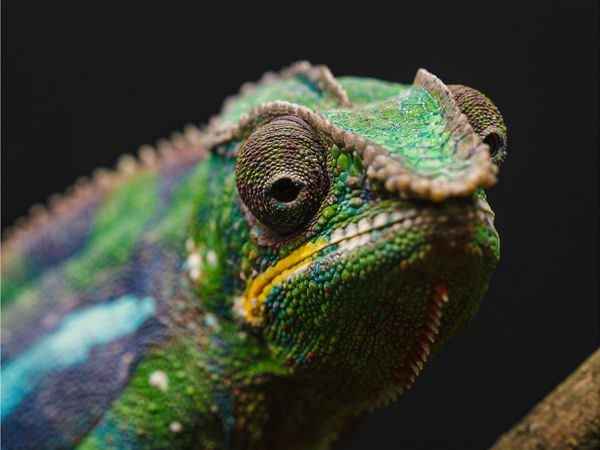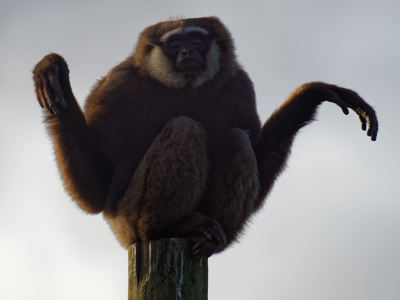
Agile Gibbon
Agile gibbons are small apes, and, like all apes, they do not have a tail. Agile gibbons have white eyebrows and the males also have white furred cheeks. The coat varies in colour from black to pale golden brown.
Like other gibbons, they have distinctive long arms and use a motion called brachiation to swing through the tree-tops. Each family lives on a territory of around 25 hectares (that’s about 25 football pitches!) and defends it from their neighbours through loud calling displays that are performed most mornings.
Key Facts:
Conservation Status: Endangered
Distribution: Indonesia, Malaysia, Thailand
Habitat: Swamp Forest, Tropical Forest
Diet: Flowers, Fruit, Insects, Leaves
Height: 45cm
Weight: 5 – 6kg
Gestation: 6.5 months
No. of young: 1 – 2
Life Span: 35 years
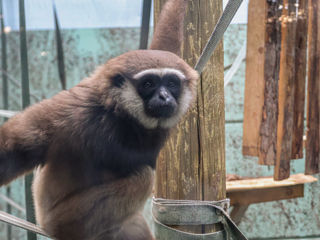
They live in family groups made up of a monogamous pair (a single male and female live together) and their offspring. Breeding occurs throughout the year but the exact length of pregnancy is unknown. Both parents care for the young and offspring live with their parents until they are around eight years old, when they leave to find a mate of their own.
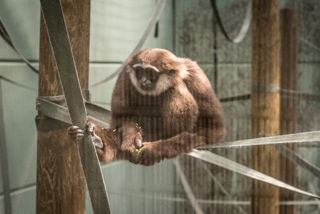
Agile gibbons eat mainly fruit, but they also eat leaves. Flowers are enjoyed when they are in season and insects are also occasionally eaten.
The main threat facing these gibbons is habitat loss, as wild forest is converted into farmland. On Sumatra, the expansion of oil palm plantations is a particular problem. As the forest shrinks, it has become easier to capture them to sell as pets; agile gibbons are regularly seen in wildlife markets.
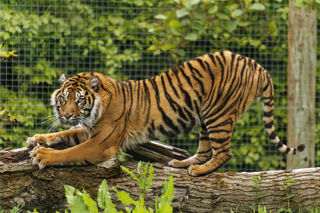
SUPPORT OUR ANIMALS
If you're looking for an alternative way to donate to Twycross Zoo, you can help support our animals and our zoo keepers by purchasing something from our Amazon Wishlist!
Updated regularly by our zoo keepers, the items on the list help to provide enrichment for our animals and keep their habitats well maintained.
Every donation helps us as a conservation charity.
